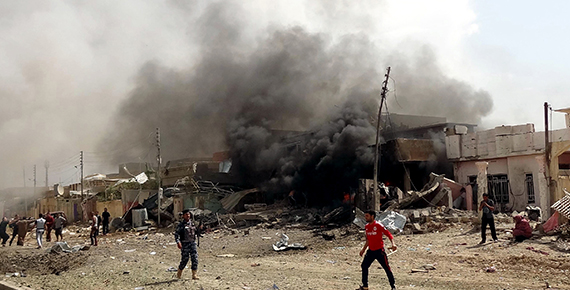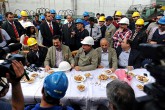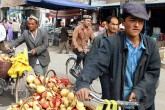The solution process we are going through is the fruit of the efforts about “Let’s not allow Turkey to become the old Turkey again.” In fact, those who resist the process, with their tragic discourses and attitudes, long for the old Turkey’s comfortable world of politics. The politics in the old Turkey was a no-identity sphere in which people spent years on several meaningless discussions here and there, if the military-judiciary tutelage tolerated them. However, in the new Turkey, where the institutional tutelage system retreated, the politics that cannot envision to become a founding actor is now losing the chance of existing outside its own ghetto. The emerging picture at the end of the last three general elections is the most clear-cut evidence of this.
Nowadays, we may not remember instantly what the old Turkey was like. Therefore, let’s refresh our memories apace: To remember the developments of the last three decades only, could be sufficient to see what a disastrous situation we have come out of. In a Turkey where we were stuck to live after the military coup and the Constitution imposed by the military, ten thousands of people lost their lives in the last 30 years due to the Kurdish problem and related acts of terror. A serious economic instability felt in the 1990s swept the country into the bankruptcy of the banking system in the early years of the new millennium.
The February 28 (1997) post-modern coup, the April 27 (2008) military memorandum, the coup plots, thousands of murders by unknown perpetrators, political party closures and abundance of bans took place in the same period. Now by looking at this picture again, Iraq comes to mind immediately. What else the expression “at least 30,000 people died and 17,000 were killed by unknown perpetrators” which we frequently utter nowadays can remind us other than Iraq?
Were the events of the 1990s (in Turkey) any different from the scenes of Iraq today which the main-stream media handles as the deepest Orientalist crisis? Were those years not recorded as “lost years”? Almost every day Shiite or Sunni venues are being bombarded in Iraq; murders or massacres by unknown perpetrators and arrays of detentions take place every day. In order to keep his rulership, though he did not win in the elections, Nouri al Maliki administration makes Iraq pay a heavy price. You may consider, by looking at today’s Turkey, that the scenes like those from Iraq will never be experienced here again. However, during the 2013 solution process of the Kurdish issue of Turkey, there are very important lessons to be learned from Iraq. Particularly, the clashes in Kirkuk, where the tension keeps escalating in the recent months, are like a golden guide about the “don’ts” of the new solution process in Turkey. There is no political, ethnic, sectarian and economic element that exists in the Middle East, but not in Iraq. Likewise, there is no political, ethnic, sectarian and economic factor that exists in Iraq, but not in Kirkuk. In short, Iraq is the microcosmos of the Middle East, and Kirkuk is of Iraq. From this viewpoint, peace in Kirkuk means law and order in Iraq. Then, why do clashes not end in Kirkuk while it is in such a precarious state?
THE DEADLOCK IN KIRKUK
Article 140 of the new Iraqi Constitution that was approved by a popular vote on October 15, 2005 was written for the solution of the Kirkuk issue. 2005 went down in history as the bloodiest year of the US occupation. The blueprint of the draft Constitution was expeditiously put on a popular vote through the de facto political situation created without even having the political participation as well as the normalization reach an acceptable level of maturity. The referendum ended with a low turnout. Instead of being a vote for the Constitution it was rather noted as an event in which the ethnic-sectarian template was institutionalized for the first time and politics lost meaning. In the aftermath of 2005, political



